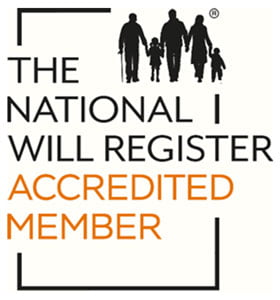Could leaving money to charity mean less inheritance tax?
Future planning, including writing a Will, isn’t just about deciding how assets should be allocated. It’s also about making the very best of those assets, preserving their value and minimising the tax that will be charged to an estate after their disposal.
A large part of what I do is guiding people towards the most tax-efficient arrangements. And one of the lesser-known ways of reducing tax liability is by leaving money to charity.
A charitable gift doesn’t attract inheritance tax (IHT). In addition, this type of gift could actually lower the IHT rate that applies to the remainder of an estate. Estates valued at £325,000 or more usually attract IHT at 40%. However, a charitable gift may reduce that to 36%. To qualify, the gift needs to be worth at least 10% of the net value of the estate. This takes some careful calculating and, as a Wills and inheritance specialist, this is something I help clients plan.
Precision around this is really important if the terms of the Will are to be carried out in the way intended, and if they’re to have the desired effect. First of all, you need to make sure your proposed charitable gift would qualify. And then you need to think about how you will frame that gift. You might want to leave money to a particular charity for a specific purpose, such as services in your local area, or care of certain people or animals. You might want to consider a revisionary gift, which means the charity is second-in-line to receive it, after a family member or friend. (That could work in the case of a property or an investment fund, for example.) These are just some of the possibilities that could provide the dual advantage of putting your assets to good use and lowering the tax bill that will be payable on what’s left.
Charitable gifts are not without their potential difficulties, however. People are not always accepting of their relative’s decision to divert inheritance away from the family. They might treat the decision as having been made ‘in the heat of a sibling rift’, or without full appreciation of the consequences. Relatives might not understand that it was done in a calculated way to bring about IHT savings. The scale of these problems obviously depends on the circumstances – not least the value of the charitable gift. It can also depend on the manner in which family members discover the arrangement.
I encourage clients to talk to those close to them about their plans, including when those plans might not be quite as expected. The chance to explain to loved ones why you have arranged things in the way you have can be so important to them respecting your wishes. Ultimately, this can lead to fewer issues in families later on.
To speak to us about making or updating a Will, or about any other aspect of future planning, contact Emma Howlett or a member of the Private Client team on 0808 256 2917






